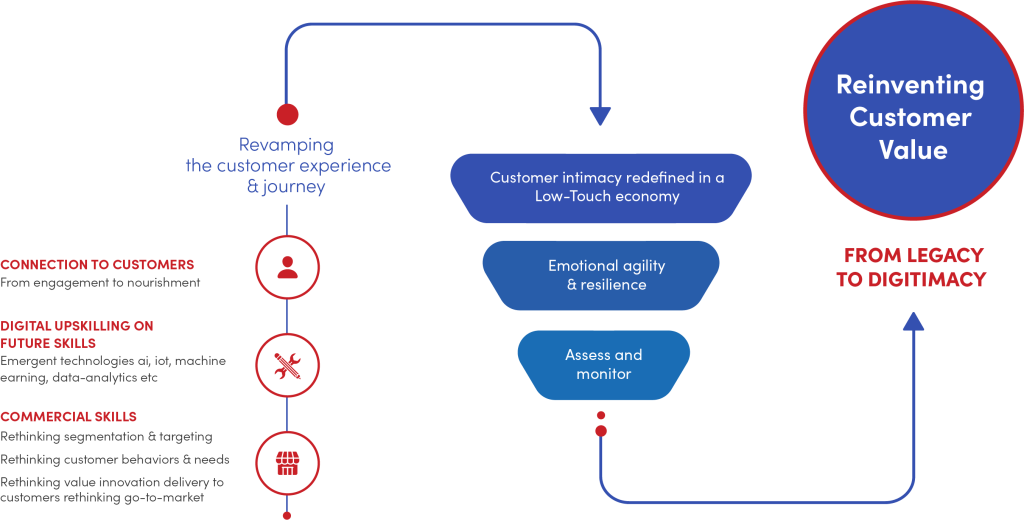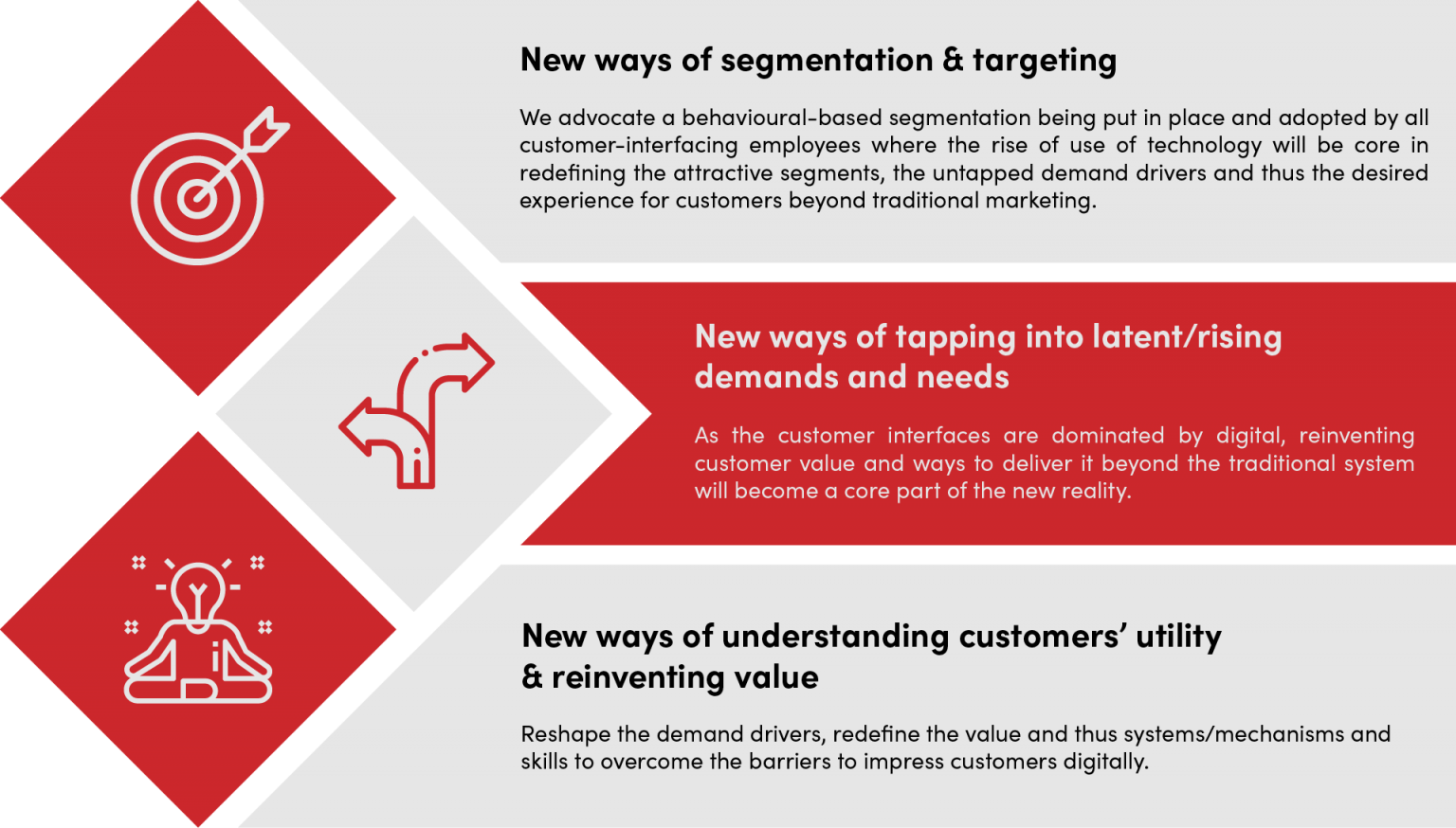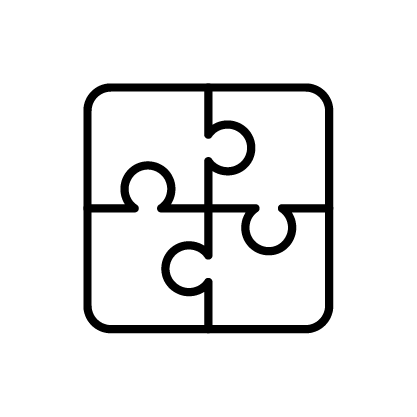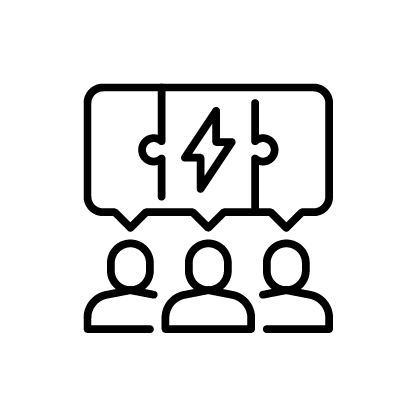This requires a fundamental change in the way the capacity of customer interfacing people is shaped, reskilling and upskilling.
High-Touch & Low-Touch

Reskilling
Reskilling is the process of matching the skills of an associate to new required functions. Reskilling involves training individuals to pivot into an adjacent or completely different job, either because their role is obsolete, or they are using outdated tech.
Upskilling
Upskilling is the process of training an employee to perform new tasks in the new function. It involves improving skills or adding new skills on top of an existing role. This is a perfect solution for talented employees or teams looking to become more specialised, refined or advanced in a particular field.

















